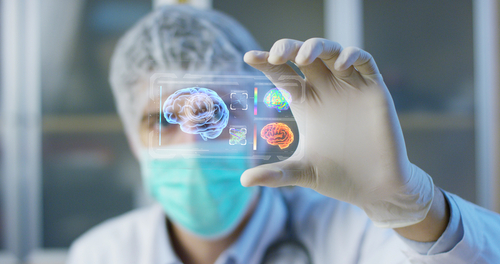
When to Ask for Help
October 2, 2017
Tom Mouracade: Medical Journal
October 4, 2017The World Health Organization estimates that 350 million people worldwide suffer from depression. Depression is not discriminatory towards certain ages, races, genders, or nationalities. Even though so many people are suffering, it is approximated that only 35% of those who have severe depression seek help from a medical professional. For people who don’t have the pain that comes with depression, it can be very difficult to understand. When a person is depressed they can’t just snap out of it and feel better. They usually need professional help through therapy and/or medication to treat the symptoms of depression.
There are many different types of depression and it can rear its ugly head in various ways. Symptoms could begin by causing an inability to focus or remember things as well as losing interest in hobbies that once brought great pleasure. The depressed person may begin to a have a persistent feeling of worthlessness, which can cause extreme sorrow. People who are depressed may want to sleep most of the time and can find it hard to perform day-to-day activities because they feel so down. As untreated depression continues, a person may begin to have suicidal thoughts and think that the world would be a better place without them.
All of these feelings associated with depression are caused by a chemical imbalance in the brain. The person is not useless and it can be said with near certainty that there are people in this world who want them around. Unfortunately, the depressed person’s brain is making them think otherwise. During periods of mental and physical stress, a person’s brain releases a chemical called cortisol. Cortisol levels increase during stressful times then return back to normal levels as situations subside. When it behaves as it is supposed to, cortisol is a beneficial and essential part of brain functioning and actually helps to regulate moods. However, in an individual who is suffering from depression, the brain does not stop the overproduction of cortisol after the stressful situation is over, which results in a chemical imbalance called depression. When extra cortisol is being produced, it causes an imbalance between three main neurotransmitters called serotonin, dopamine, and norepinephrine. These imbalances are what cause a person’s moods to manically shift. A person who is ridden with depression is not weak nor are they able to even control the emotional waves that it brings. In addition, while depression can occur on its own, it can also be substance induced. Therefore, many people who suffer from addiction may also have depression, and they tend to feed off each other.
The Kimberly Center is a place for healing. We welcome you to our treatment programs for substance dependence and abuse where the number one goal is restoring your or your loved one to live a healthier, happier, and more productive life. A life free from substance dependence and destructive behaviors waits. Call us now for information on our programs of treatment and start your journey today: 855-452-3683




